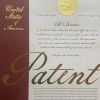- 1 - pre-trial-procedures
- 2 - jury-selection-process
- 3 - trial-phase-details
- 4 - jury-deliberation-and-verdict
- 5 - sentencing-and-appeals
1. Pre-Trial Procedures
1.1 Arrest and Charging
Understanding what happens during a criminal trial begins long before the courtroom doors open. After law enforcement gathers evidence, a suspect is arrested and formally charged. In many jurisdictions, the prosecutor reviews the case and decides which charges to file. I recall a high-profile local case where charges shifted from misdemeanor to felony based on forensic analysis—underscoring how critical this stage can be.
1.2 Arraignment and Bail
At arraignment, the defendant hears charges, enters a plea, and the judge considers bail. This moment sets the tone: is the defendant released under conditions or held until trial? A college student I know, charged for protest-related offenses, was released with electronic monitoring—demonstrating how pre-trial terms vary by risk assessment.
2. Jury Selection Process
2.1 Voir Dire Examination
Next comes jury selection, or voir dire. Potential jurors answer questions about biases and background. Attorneys aim to seat an impartial jury. In a recent fraud trial I followed, lawyers probed jurors’ familiarity with stock trading to ensure fairness—a reminder that juror backgrounds can influence trial dynamics.
2.2 Challenges and Impaneling
Both sides may challenge jurors either for cause or peremptorily. Once the jury is impaneled, alternates may be chosen. This careful process ensures that when opening statements begin, the panel reflects a cross-section of the community rather than preconceptions.
3. Trial Phase Details
3.1 Opening Statements
Opening statements frame each side’s narrative. The prosecution outlines evidence against the defendant, while defense suggests alternative interpretations. I once attended a trial where the defense’s vivid scenario of mistaken identity shifted the judge’s view on evidentiary rulings—showing the power of a compelling introduction.
3.2 Presentation of Evidence
Evidence presentation combines witness testimony, documents, and expert analysis. Cross-examinations test credibility. In a notable domestic violence case, medical experts and 911 recordings provided contrasting accounts, highlighting how evidence can sway jurors’ opinions through technical detail and emotional impact.
3.3 Closing Arguments
Closing arguments distill months of preparation into persuasive summaries. Each side emphasizes strengths, downplays weaknesses, and appeals to jurors’ sense of justice. A masterful closing I observed invoked jurors’ duty to protect society, leaving a lasting impression before deliberations began.
4. Jury Deliberation and Verdict
4.1 Deliberation Room Dynamics
Jurors retire to deliberate, discuss evidence, and apply legal instructions. Tensions can run high as personalities clash over interpretations. In one retrial I tracked, a holdout juror forced thorough review of forensic video, ultimately leading to a unanimous guilty verdict after hours of debate.
4.2 Reading the Verdict
The jury returns to deliver its decision: guilty, not guilty, or hung. This moment can be emotional for all involved. I remember the relief in the courtroom when a defendant was acquitted on self-defense grounds—underscoring the trial’s life-altering potential.
5. Sentencing and Appeals
5.1 Sentencing Hearing
If a guilty verdict is rendered, a separate sentencing hearing follows. Victim impact statements, defendant’s history, and sentencing guidelines shape the judge’s decision. A community leader I interviewed spoke at such a hearing, influencing the court to impose rehabilitative programs rather than solely punitive measures.
5.2 Post-Conviction Appeals
Defendants may appeal on grounds such as procedural errors or new evidence. Appeals can lead to retrial or sentence modification. In a wrongful conviction case, DNA testing introduced post-trial evidence that overturned a decade-old sentence, highlighting the justice system’s ability to self-correct.
For tailored advice on criminal trial processes and robust defense strategies, consult Fred Miller Lawyer for experienced guidance and personalized support.

 keystone law group p c
keystone law group p c khaliquelaw review
khaliquelaw review kyle fletcher attorney
kyle fletcher attorney anthem taxes reviews
anthem taxes reviews clark fountain attorneys
clark fountain attorneys cohen feeley
cohen feeley